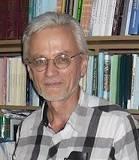The Judgment of Aleppo
PARIS – We must halt the massacre in Aleppo. Whatever the cost, we must stop the massive, random, indiscriminate bombings – and, worst of all, the discriminate ones aimed chiefly at civilians, humanitarian convoys, and hospitals – that the forces of Bashar al-Assad and Russia have resumed with a vengeance in and around what was once Syria’s most populous city.
We must call a halt in the days (if not hours) ahead to the rain of steel, the cluster and phosphorus bombs, and the barrels of chlorine dropped from low-flying government helicopters on the last parts of Aleppo held by moderate rebels. The world, with the democracies out front, cannot fail to respond to the horrifying images, relayed by the few witnesses still there.
Those images are of children’s shriveled, vitrified bodies; of the wounded whose limbs, for lack of drugs, have been amputated by desperate doctors who are soon massacred themselves; of women mown down by rocket fire, as in Sarajevo 24 years ago, while waiting in line to buy yogurt or bread; of volunteers struck down while digging through the rubble in search of survivors; of human beings drained of strength, surviving in filth and waste, saying goodbye to life.
We must smother the columns of fire and smoke.
We must dispel the clouds of flaming gas streaming from the murderers’ unprecedentedly sophisticated weapons.
We must act because we can act.
And we can act because those who are responsible for this carnage, for these war crimes, for an urbicide in which probable crimes against humanity are compounded by the destruction of sites of memory and culture that counted among the world’s vital heritage, are not hiding. They are standing in plain sight as they destroy Syria’s most cosmopolitan, wondrously alive city, doing nothing to hide their acts. We know who they are.
I mean, of course, the regime in Damascus, which years ago we should have begun to deal with as we dealt with Muammar el-Qaddafi’s regime.
I mean, too, the regime’s Iranian and, above all, Russian sponsors. For five years, they have systematically blocked every attempt at a resolution emanating from the United Nations. Russian planes have, in several well-documented instances, openly participated in Assad’s massive campaign against civilians. Indeed, the Kremlin appears increasingly determined to apply to Syria the policy practiced in Chechnya, namely to “kick into the crapper” those whom Foreign Minister Sergei Lavrov is again mendaciously labeling “terrorists.”
Given these facts, there is no dilemma about whether it is necessary to act.
But, because the United States adopted the position it did three years ago, after President Barack Obama chose not to punish Assad for using chemical weapons (a red line that Obama himself had drawn), I fear that the responsibility falls chiefly, if not exclusively, on Europe.
It’s our choice. We in Europe can draw our own red line, warning Russia that, if the line is crossed, we will increase sanctions against it as a state henceforth held to be responsible for the crimes of its Syrian vassal. We can also immediately take the initiative to establish a forum for negotiation and pressure akin to the “Normandy format” that President François Hollande and Chancellor Angela Merkel successfully conceived two years ago to contain the war in Ukraine. In so acting, we can force the aggressor to come to terms.
Or we can do nothing and acquiesce in another Sarajevo, as François Delattre, France’s ambassador to the United Nations, put it; we can run the risk of an Arab Guernica, with Russian aircraft in the role of the German Condor Legion over the skies of Republican Spain in 1936. In that case, we would not only reap dishonor, but also, to paraphrase Winston Churchill, raise to extreme levels all of our present dangers, starting with a dramatic increase in the tide of refugees, most of whom have fled Syria as a direct consequence of the world’s nonintervention.
This is where we stand: Aleppo, besieged and in ruins, exhausted and abandoned by the world, yet defiant – dying with its boots on – is our shame, our crime of omission, our self-abasement, our capitulation in the face of brute force, our acceptance of the worst in humanity. Aleppo, which no longer cries out, is dying and cursing the West. And Europe, on the front line, risks its future and a part of its identity as the people it could not protect press at its borders, asking to be let in.
Will Europe surrender, in Aleppo, what remains of its soul, or will it pull itself together, hold up its head, and do what it must?
If Europe can’t or won’t answer that question, all of the other questions and crises it is facing may well become irrelevant.
Bernard-Henri Lévy is one of the founders of the “Nouveaux Philosophes” (New Philosophers) movement. His books include Left in Dark Times: A Stand Against the New Barbarism, American Vertigo: Traveling America in the Footsteps of Tocqueville, and the forthcoming Spirit of Judaism.
Copyright: Project Syndicate, 2016.
www.project-syndicate.org
This article is brought to you by Project Syndicate that is a not for profit organization.
Project Syndicate brings original, engaging, and thought-provoking commentaries by esteemed leaders and thinkers from around the world to readers everywhere. By offering incisive perspectives on our changing world from those who are shaping its economics, politics, science, and culture, Project Syndicate has created an unrivalled venue for informed public debate. Please see: www.project-syndicate.org.
Should you want to support Project Syndicate you can do it by using the PayPal icon below. Your donation is paid to Project Syndicate in full after PayPal has deducted its transaction fee. Facts & Arts neither receives information about your donation nor a commission.



















